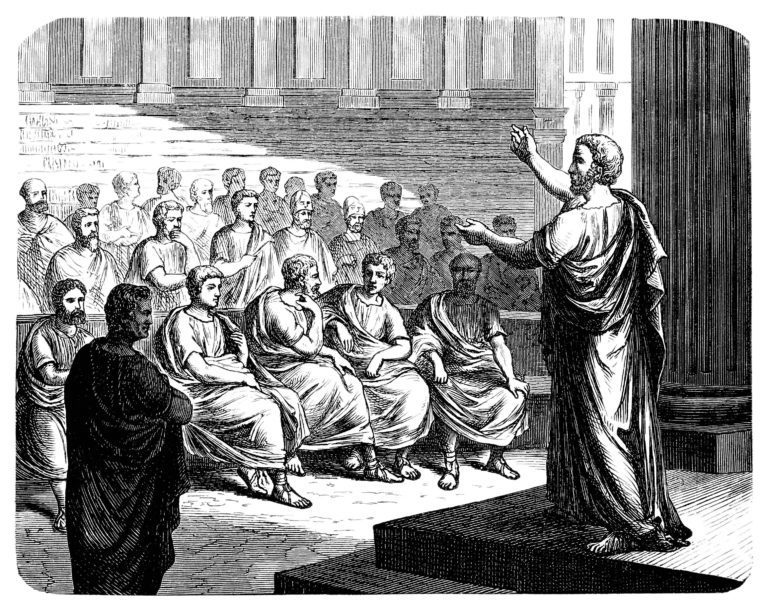
Democracy was hard to establish even in the ancient city of Athens, where this new political system was born. It was the result of a dramatic process that lasted almost a hundred years.
Three statesmen played a decisive role throughout the 6th and 5th centuries BC : Solon, Kleisthenes and Themistokles.
Solon
Solon, the Lawmaker, one of the Sages of the ancient world, initiated the process with his legislation that put an end to the dreadful living conditions of the poor.
He abolished debts and the slavery that derived from them (many Athenians had been enslaved to their debtors). Solon also ensured the return of the land to the original owners and helped the citizens that had fled to return. He limited ownership of land for the aristocracy. He completed his work by handing political rights to the poor and by offering them the chance to be part of the 6,000 judges in the courts of law.
Kleisthenes
Kleisthenes, another renowned aristocrat, towards the turn of the century (early 5th BC) promoted isonomy, the equality of citizens before the law. He introduced the idea of dividing all the citizens in 10 equal tribes. They would vote for their leader once per year, for 50 senates (βουλευτές) and they were led by their general in the battlefield. He is thought to have introduced ostracism, an institution of ancient Athens that protected the democratic system from the terror of tyranny. Effectively, Kleisthenes succeeded in enforcing the personal relationship of the citizen with the state.
In conclusion, Kleisthenes’ new system of government was the foundation on which classical Athenian democracy was erected.
Themistokles
Themistokles was one of the most astute and effective leaders in history. He championed a long term policy to turn Athens into a naval power. He made Peiraieus the port of the city and built a fleet of 200 warships (triremes). The manpower of the triremes were the sailors/rowers who were members of the lower social classes. It was them who now became the heroes instead of the glorious aristocratic horsemen of the past.
As a result of the victory of Salamis against the Persian fleet, Athens laid claim to the hegemony of Greece. Themistokles kept the Spartans away with diplomacy and built the new walls of his city. This Themistokleian wall was filled with the funerary monuments of the aristocracy. This was possibly a political statement against the glory of the aristocrats.
The architect of the Athenian naval power and the hero of the victory of Salamis was dramatically ostracised around 472BC, leaving the city safe to progress further and refine democracy.
The Pnyx, where democracy was born can be visited during the Ancient Agora and flavours of modern Athens tour :

